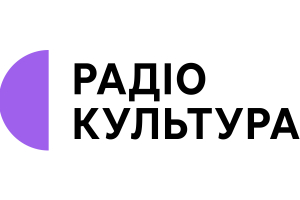Ivan Franko National Academic Drama Theater Presents “Fine Franko Fusion”
Ivan Franko National Academic Drama Theater recently has presented the event "Fine Franko Fusion" as a part of the project "Senses that Unite" by the NGO ALEM.
“We commemorate the victims of the deportation of the Crimean Tatar people. In 1944, Russian imperial policy sought to destroy, resettle, and kill the Crimean Tatars. Yet, even 80 years later, we face the same enemy. The fact that our brothers and sisters are now on the battlefield is a consequence of those events,” said Yevhen Nyshchuk, general director and artistic director of the Theater, during the opening of the project.
“The Crimean Tatar people are an integral part of our united community. I am grateful to the team of actors and organizers who has prepared this project today. At a time when cultural movements cooperate, presenting such projects that illuminate the tragic pages of our people's history is crucial.”
As a part of the project, traditional Ukrainian and Crimean Tatar old chants, author's compositions based on folk melodies by Serhii Hdanskyi, Oleksandr Kokhanovskyi, Susanna Karpenko, Stanislav Moroz, as well as jazz improvisations on Ukrainian folk songs were performed.
The exhibition also featured the national Crimean Tatar ornament - Ornek -, one of the oldest cultural achievements of the Crimean Tatar people. In 2021, it was included in UNESCO's Representative List of Intangible Cultural Heritage of Humanity.
"Human nature is such events fade over time, new emotions and impressions are layered on them - this is a normal human psychology. However, there are things we cannot afford to forget. They must be persistently remembered and passed on to future generations. Such projects not only prevent forgetting but also educate and contribute to this cultural memory. By remembering the past, we give a correct assessment of the present," said Rostyslav Karandieiev, Minister of Culture and Information Policy of Ukraine.
“I am a Crimean Tatar born in Uzbekistan, where my parents, grandparents, and all our people were deported 80 years ago. For 45 years living in a foreign land, my people have learned to express an incredible scope of feelings through folklore: from despair and longing for homeland to joy, hope, and happiness,” said Esma Ajieva, Head of the Board of the NGO “ALEM”.
“It's hard for me to imagine how they managed to maintain their inner balance and how much wisdom was needed to raise the next generation with great love for their cultural identity, love for our traditions that we preserve and pass on to future generations.”
It is worth noting that on May 18, 1944, the Soviet regime began the total deportation of the Crimean Tatar people from the Crimean Peninsula to Central Asia and Siberia. Approximately 238,500 people were deported; 46% of deportees died on their way or in the first years after eviction. They were officially allowed to return to Crimea only in 1989.

Ivan Franko National Academic Drama Theater Presents “Fine Franko Fusion”






